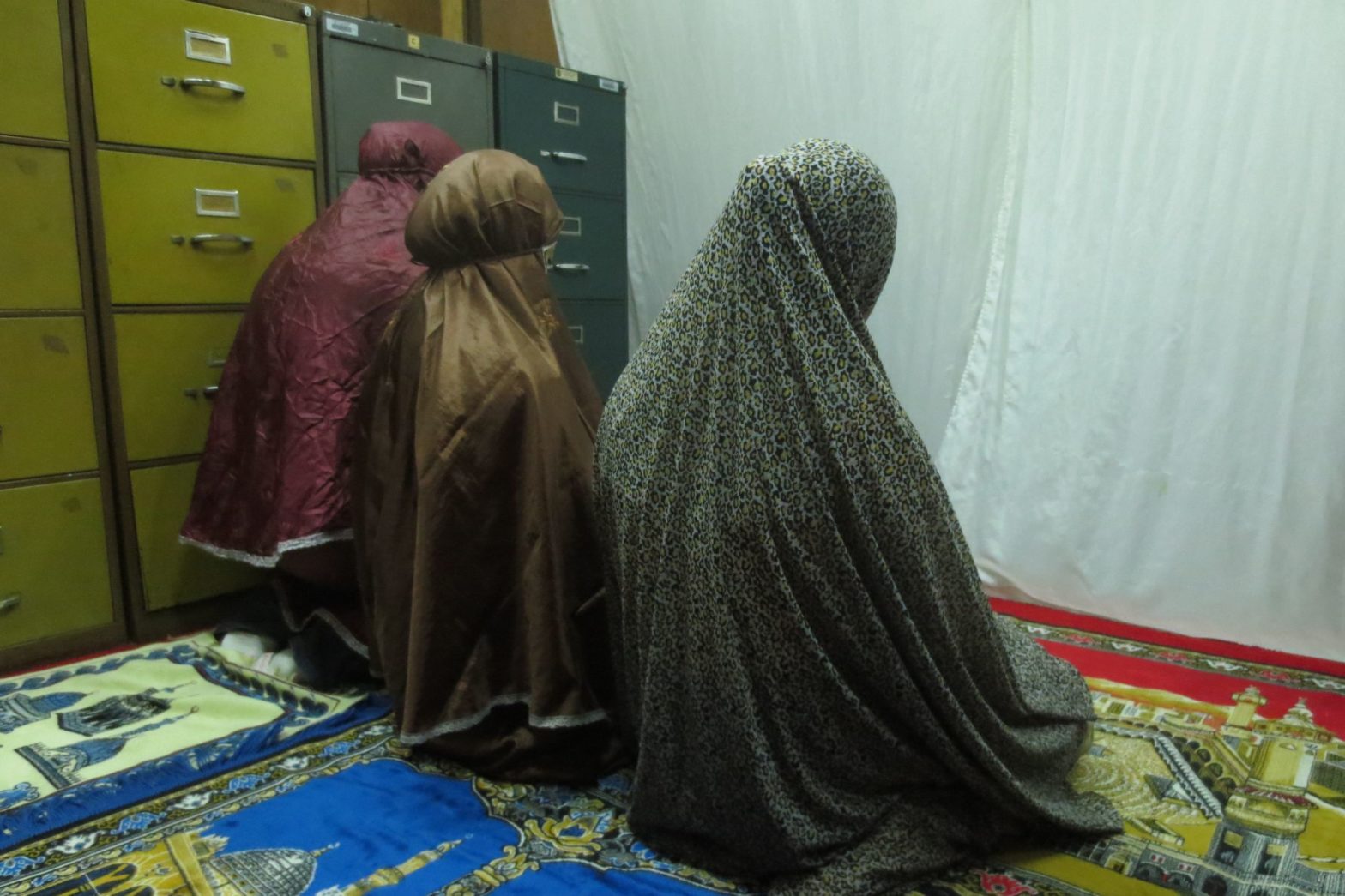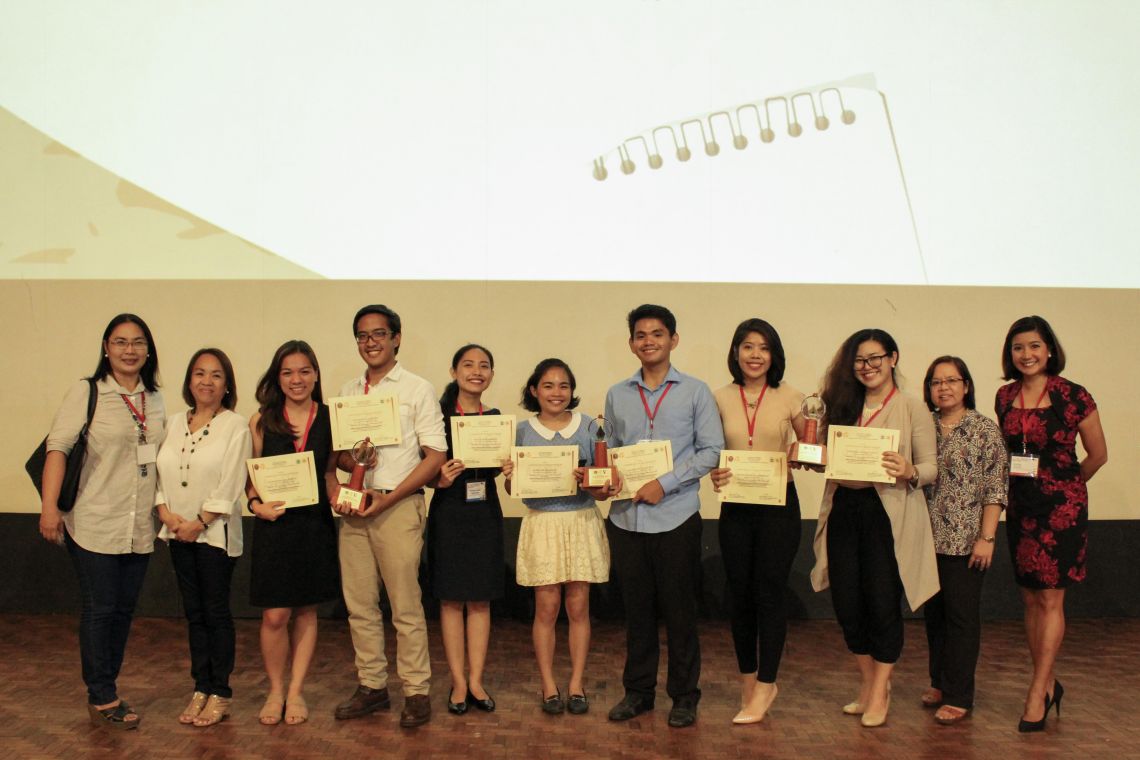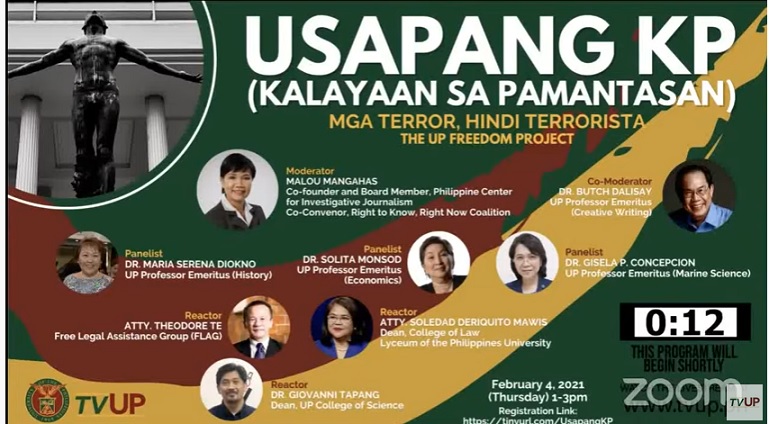I recall from my erstwhile years at the University of the Philippines schoolmates who had later joined the Philippine Military Academy, one of whom became chief of the Philippine Navy. My own high school class of Xavier University Ateneo de Cagayan, also red-tagged by neo-McCarthyist supremo Antonio Parlade, had produced only one leftist cadre in contrast to, among others, a secretary of agriculture, an undersecretary of tourism, a public health doctor, law and medical professors, a college dean, a congressman, and two municipal mayors. The leftist cadre was held in high esteem, standing tall among the sterling as the class salutatorian.
Aside from producing PMA graduates, the university breeds all kinds in this poor country of ours, where otherwise-higher education is a dream not reached by many. The university has to exist for people from all walks of life.
Universities cannot be puppeteers, because students are not inanimate objects but human beings imbued with intellect and, above all, a free will. Missing out on that fundamental truth, the military’s red tagging propagandists have not even a scrap of sense of what constitutes the moral anthropology of man. It cannot and does not have the ascendancy to make judgments on universities.
Simply, there is no opposite of red. The university stands by a humanist political science that can neither be simplified into dichotomies nor relativized as amoral, among many: that a corrupt government is immoral, that the stealing of public money by people in government is an evil, that the state using disinformation is a corrupt state, that discrimination against the poor in the application of laws and of equal opportunities is a moral wrong, that the state which places zero value on human life is downright criminal. The university that pricks the conscience of its students on these non-negotiables performs its role well in the promotion of the common good. Ergo, the university that negates these truths is the best recruiter of subversives.
As universities espouse institutional goals, it has no control over how its graduates turn out later in life. Graduates pursue their future careers in the light of their own personal judgments. Universities cannot predict the outcome of its alumni. It can only make best practices. The world outside the university is harsh, and universities can only do so much in shaping its graduates.
May I indulge the picketing members of the so-called Duterte Youth party list group whose few followers look youth-no-more (a quip from a netizen: “if they are youth, then I must still be an infant”). The word “university” comes from its lofty Latin root universitas magistrorum scholarium: community of teachers and scholars. It is a concept indispensably linked to the norm called academic freedom, the standard begun by the revered University of Bologna. In the year 1158, it promulgated the first-ever academic charter Constitutio Habita that guaranteed “unhindered passage in the interests of education.” Unhindered passage. In 1988, 904 universities signed the Magna Charta Universitatum; it claimed the University of Bologna’s concept of academic freedom as the key philosophy of all universities.
Universities grant degrees free from the dictates of temporal powers – meaning it is free to confer judgment on a student’s academic capability without interference from kings, emperors, or any kind of direct authority.
Sorry, Mr. Parlade, Ms. Lorraine Badoy, and Ms. Ducielle Cardema: It was because of academic freedom that Euclid’s Elements developed mathematical treatises that gave rise to such sciences as algebra and geometry, and eventually astronomy. Diagnoses of illnesses flourished under academic freedom, hence the birth of medical sciences such as ophthalmology, embryology, anatomy, and fertilization. Central to academic freedom in universities were epistemology (the study of knowledge, hence the reason universities require thesis and dissertations, Mr. Ronald Cardema) and the philosophical sciences.
It is in university forums where the need to address the most difficult human problems are freely debated. This phenomenon known as humanism is an essential utility in universities that fuels a spirit of free inquiry about the natural processes shaping human life. It was this spirit that fuelled the discovery in the 12th century of Aristotle’s works; about 3,000 pages of it were eventually translated for the entire world to ponder on. Police this quest for knowledge and the result will be a warped world devoid of any intellect. It will be a world of subhumans easily dictated and cowed by state forces – that is, if any state formation could happen at all, because, absent universities, there will be no personnel left human enough to man the state’s agencies tasked to serve the common good.
Universities are not just foundational training grounds for skills. It must also promote the powers of the human mind so that it produces not just specialists but also men and women with cultivated minds. That is where research is a prominent part of university. Teaching must be balanced by research because teaching can never be separated from the search for truth, including the most inconvenient truths. State-sponsored repression inhibiting that inquiry for truth runs counter to basic human freedom.
Parlade wants to dichotomize higher learning where there simply is none. Proof of the pudding: Even the PMA has produced New People’s Army rebels, among them Lieutenant Victor Corpus, Lieutenant Crispin Tagamolila (PMA 1966, killed in Echague, Isabela in 1972 as an NPA cadre), and General Raymundo Jarque.
While downright silly, reactions in social media were aptly commensurate in noting that the red-tagging should include all kinds of schools: driving schools, culinary schools, fashion and beauty schools – because, really, even these schools can produce not just NPAs but, worse, scoundrels like corrupt politicians, just as it can also produce august statesmen.
Red taggers miss the point. The best source material in judging a university is its body of published works. What humanistic ideals of science and scholarship does the university demonstrate? If they fail society and its realities, then that is the best revolutionary call to rebellion.
The views in this column are those of the author and do not necessarily reflect the views of VERA Files.





